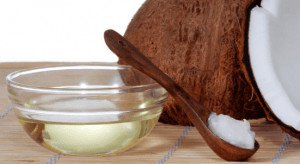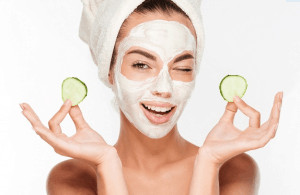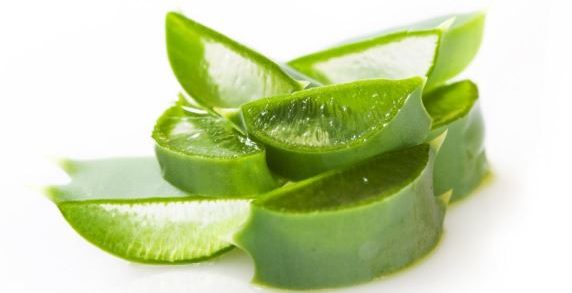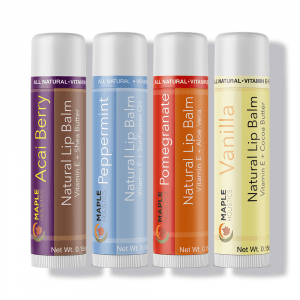Soothe And Repair Your Dry Skin: Top 10 Natural Winter Tips!

It’s extremely difficult to find a happy medium between dry skin and oily skin. But in the winter, it’s a completely different ball game – dry skin begins to haunt your every move.
I find it fascinating that ‘cuffing season’ and ‘dry skin season’ align. If you don’t know what cuffing season is, it’s when someone who usually loves to be single feels pressured to couple-up during the cold months. Either they feel this way because all their friends are in relationships, or because there’s not much to do outdoors so they have to find a way to bring the fun indoors. In walks their future ex-boyfriend.
Either way, it’s interesting that dry skin may be extremely bothersome to some yet doesn’t seem to put a damper on one’s social life or cuffing season.
With the weather changing every day and the heat blasting in our homes, does our skin stand a chance of looking hydrated and smooth? Well, if you must know, there are plenty of ways to keep your skin soft and unaffected by the ‘winter blues’. The best way to combat dry skin is to learn what’s causing it. Which is why we’ll begin right there.
What Causes Dry Skin In The Winter?

Opt for a lukewarm bath in order to keep your skin properly hydrated.
There are unfortunately many things that cause dry skin in the winter. Some of these things we have a bit of control over, but others we definitely don’t. For example, we have zero control over the cold, dry air. Cold air generally has less moisture than hot or warm air.
This causes our skin to quickly dry out. The harsh winds don’t help either, which is why you should be careful to bundle up. Many think the sun isn’t something that you need to worry about in the winter months. But just because you don’t feel it doesn’t mean the UV rays aren’t present and hurting your skin.
It wouldn’t be a winter day without a warm beverage in your hand. Well, that hot beverage is most likely causing more harm than you thought. If it contains caffeine, as coffee, tea, and hot chocolate all generally do, then it will dry out your skin from the inside out. Alcohol has the same effect, so try not to overdo it at your office holiday party. Hot showers and baths can also be causing your dry skin.
You should use lukewarm water instead. I will talk more about this later on. The heat blasting in your home could also be the culprit of your dry skin. Continue reading to learn some tips for combating the effects of the cold.
1. Drink More Water

Drink water to keep your skin healthy.
Keeping your skin properly hydrated has a lot more benefits than just making your skin not look dry and flaky. It can help slow the aging process of your skin. Drinking more water maintains your skin’s elasticity, keeping it from sagging or from getting wrinkles. Hydration also fights oil and acne.
When we deprive our skin of hydration, it tends to overproduce oil, which only leads to clogged pores and loads of breakouts. Remember that there is a difference between hydrating and moisturizing. Hydrating is the adding of water to your skin, while moisturizing is preventing the skin’s water content from evaporating into the air.
2. Get a Good Humidifier
When winter comes in cold, the heating bills go up. Not only is the heater drying out your home, but it’s also drying out your skin. Humidifiers infuse the air with moisture, soothing your itchy, dried-out skin. It’s a great investment not just for the winter, but for all year ‘round. It may even be worthwhile for you to get a good humidifier for every room of your house that is occupied at the same time. When the air is dry, it literally sucks the moisture out of our skin. This leaves our skin parched and our noses stuffed.
3. Coconut Oil

Coconut oil is great for your skin.
Organic coconut oil is a highly effective product for skin care. It fights free-radical damage with its natural antioxidant properties and keeps your skin lookin’ young. When it comes to coconut oil, a little goes a long way. So you’ll only need to use a small amount each time to reap its full benefits.
If you suffer from dry skin, especially in the winter, just take a quarter teaspoon of oil, rub it into your hands and then onto your face. Wait about five to ten minutes for the oil to absorb into your skin and then blot it with a towel. A thin layer is all you need to prevent loss of moisture.
4. Exfoliate
As we get older, so does our skin. And its natural ability to regenerate new layers of skin begins to slow down. This is why our skin needs extra love as we age. A gentle exfoliation will remove old skin cells, revealing glowing, fresh skin. It’s difficult to remember to focus on the rest of your skin, not just your face. Our hands are usually one of the first parts of our bodies to get affected by the cold.
Moisture can’t get in unless we exfoliate them. The same exfoliant you use on your face should also work wonders for your hands. Following that up with a moisturizer is a sure way to leave you with smooth, soft skin.
5. Face Mask

A face mask is essential for the winter months.
A homemade, hydrating face mask is a must during the winter months. You just need to use natural moisturizing ingredients like egg yolks and olive oil. Once the olive oil and egg yolks are whipped together, you can apply the mixture to your face and leave it on for 20-30 minutes. Wash it off with water and you’re left with lasting hydration.
This is beneficial to your skin because olive oil is rich in natural antioxidants and vitamins E and K. Egg yolks are able to effectively treat dryness and nourish your skin because they contain vitamin A and lecithin. Lethinin works by improving skin texture and stimulating cell regeneration.
6. Use Lukewarm Water
There’s nothing better than jumping in a hot shower at the end of a very cold day. Or even better, soaking in a hot bubble bath! But, the truth is that long, hot showers slowly strip away our skin’s protective barriers- meaning all of our natural oils. Sometimes hot showers are unavoidable.
But if you can use lukewarm water when washing your hands and your face, you’ll decrease the winter dryness that becomes more and more common as the temperature drops. You may think that a bath is better, but soaking in hot water for an extended period of time will cause harm. If you can’t resist a bath, add a few spoonfuls of olive oil to the tub. This should help prevent some dryness.
7. Aloe Vera

Aloe vera can help nourish and moisturize your skin.
As aloe vera is native to a dry climate, its leaves store mass amounts of water to keep the plant from drying out. The plant can work the same way for our skin, hydrating and moisturizing it. Our skin is constantly protecting us from harmful toxins, bacteria, and chemicals.
Even when we don’t have wounds, our skin still needs our love and support. You can use aloe vera on your dry skin by mixing it with turmeric, honey, milk, and rose water. Leave the paste on your skin for 20 minutes and your skin will thank you!
8. Jojoba Oil
Jojoba oil was created to hydrate skin. It absorbs quickly without leaving any oily residue. It contains waxy substances (ceramides) that repair your damaged, dry skin. They coat the skin cells, leaving them hydrated. It’s an anti-inflammatory, antibacterial, antiviral, anti-aging, and moisturizing oil. Since it is made up of ceramides, it creates a protective barrier against allergens, dust pollution, and, of course, moisture loss.
To treat your dry skin, rub a small amount of jojoba oil on your hands and face right before bed and wash it off when you wake up. Easy! For your feet, you can put the oil on and then put on your socks for an intense treatment that will leave your feet soft and smooth.
9. Diet Change

Eating watermelon or other fruits will help you stay hydrated.
A diet change during the cold months can improve your skin substantially. Eating foods that are high in water content will help hydrate your skin from within. Cantaloupes, apples, oranges, kiwis, watermelons, tomatoes, celery, zucchini, cucumbers, and carrots all have high water content. Vitamin C and zinc are important for the healthy production of collagen and elastin.
If you don’t think you have enough of those nutrients in your diet, you can take them as supplements. You may also want to consider eating more fatty fish. Omega-3 helps your skin look smooth and supple. Consuming healthy oils also helps rejuvenate our skin from the inside out.
10. Maple Holistics Lip Balm

Maple Holistics’ lip balms will help your lips stay hydrated and smooth during the winter.
We may bundle up in the winter, but there’s always that little something that’s exposed… our lips! Many people have chapped lips throughout the year but truly suffer when the cold strikes. Our lips don’t have oil glands, causing them to constantly be exposed to the elements. Therefore, it’s crucial to use the perfect lip balm. Maple Holistics’ lip balm is the way to go. It’s carefully formulated to provide your pout with long-lasting protection. It also has SPF 15, which will keep your lips from getting burnt (yes, that is possible in the winter).
Conclusion
As seasons change, so does our skin. Along with drying our skin, the cold could also cause it to become highly sensitive to the usual products we use throughout the year. Skin conditions like eczema or psoriasis tend to flare up in the winter as well.
All these skin changes happening at once cause a ton of stress to most. Many people begin to beg for spring to appear, but they seem to have forgotten how excited they were for winter. Pulling out the big, chunky knits and cute hats that can cover any bad hair day are what winter dreams are made of, right?
Dealing with dry skin in the winter months doesn’t have to be inevitable. It can be prevented and treated! Once you learn what could be causing your dry skin, you’re one step closer to fighting it. You most likely just have to make a few adjustments to what you eat or how you shower. And you also may benefit by investing in a good humidifier.
Let’s make the most of the winter months and stop wishing for the next season, which will surely come with its own set of skin issues.

